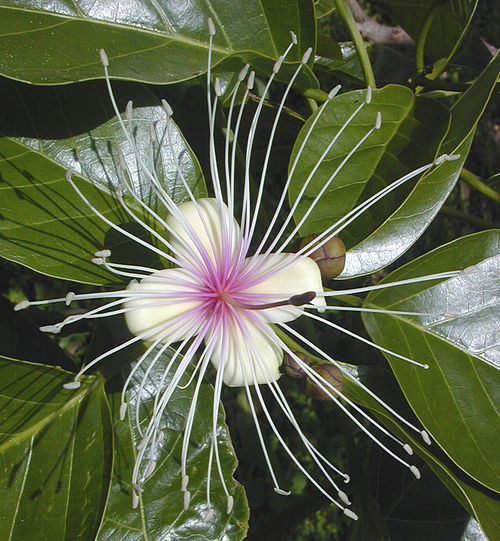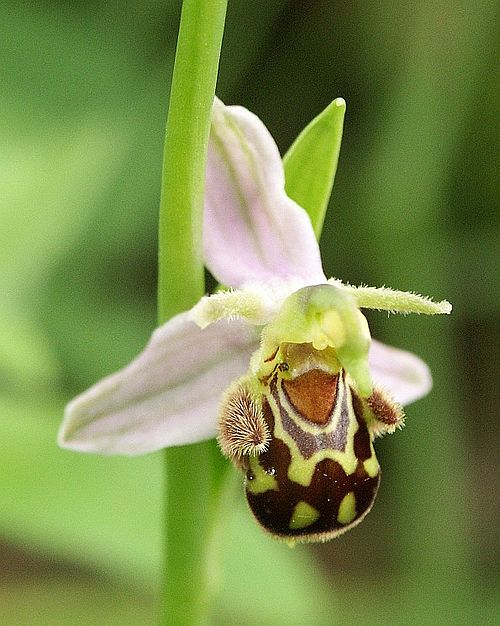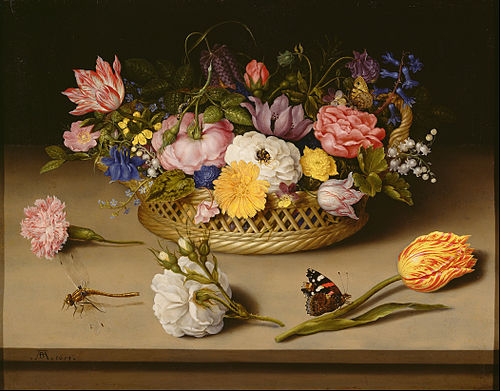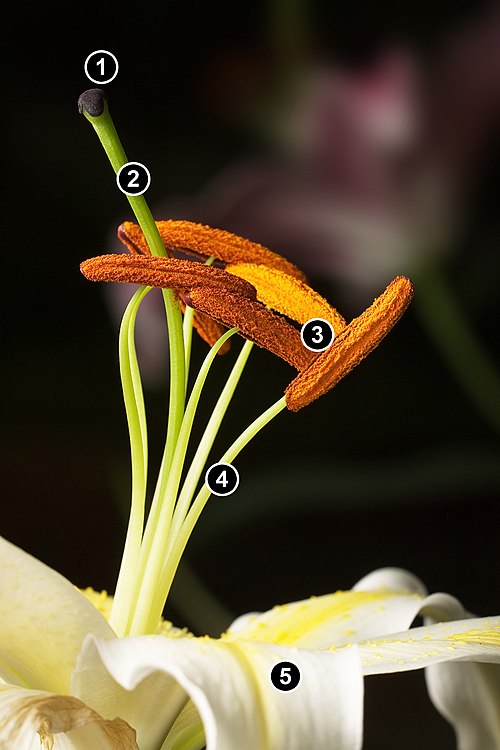Flowernoun
A colorful, conspicuous structure associated with angiosperms, frequently scented and attracting various insects, and which may or may not be used for sexual reproduction.
Flowernoun
(botany) A reproductive structure in angiosperms (flowering plants), often conspicuously colourful and typically including sepals, petals, and either or both stamens and/or a pistil.
Flowernoun
A plant that bears flowers, especially a plant that is small and lacks wood.
Flowernoun
(usually with in) Of plants, a state of bearing blooms.
Flowernoun
The vulva, especially the labia majora.
Flowernoun
(idiomatic) The best examples or representatives of a group.
Flowernoun
The best state of things; the prime.
Flowernoun
(obsolete) Flour.
Flowernoun
A substance in the form of a powder, especially when condensed from sublimation.
Flowernoun
A figure of speech; an ornament of style.
Flowernoun
(printing) Ornamental type used chiefly for borders around pages, cards, etc.
Flowernoun
(in the plural) Menstrual discharges.
Flowernoun
(rare) Something that flows, such as a river.
Flowerverb
To put forth blooms.
Flowerverb
To decorate with pictures of flowers.
Flowerverb
To reach a state of full development or achievement.
Flowerverb
To froth; to ferment gently, as new beer.
Flowerverb
To come off as flowers by sublimation.
Flowernoun
In the popular sense, the bloom or blossom of a plant; the showy portion, usually of a different color, shape, and texture from the foliage.
Flowernoun
That part of a plant destined to produce seed, and hence including one or both of the sexual organs; an organ or combination of the organs of reproduction, whether inclosed by a circle of foliar parts or not. A complete flower consists of two essential parts, the stamens and the pistil, and two floral envelopes, the corolla and callyx. In mosses the flowers consist of a few special leaves surrounding or subtending organs called archegonia. See Blossom, and Corolla.
Flowernoun
The fairest, freshest, and choicest part of anything; as, the flower of an army, or of a family; the state or time of freshness and bloom; as, the flower of life, that is, youth.
Flowernoun
Grain pulverized; meal; flour.
Flowernoun
A substance in the form of a powder, especially when condensed from sublimation; as, the flowers of sulphur.
Flowernoun
A figure of speech; an ornament of style.
Flowernoun
Ornamental type used chiefly for borders around pages, cards, etc.
Flowernoun
Menstrual discharges.
Flowerverb
To blossom; to bloom; to expand the petals, as a plant; to produce flowers; as, this plant flowers in June.
Flowerverb
To come into the finest or fairest condition.
Flowerverb
To froth; to ferment gently, as new beer.
Flowerverb
To come off as flowers by sublimation.
Flowerverb
To embellish with flowers; to adorn with imitated flowers; as, flowered silk.
Flowernoun
a plant cultivated for its blooms or blossoms
Flowernoun
reproductive organ of angiosperm plants especially one having showy or colorful parts
Flowernoun
the period of greatest prosperity or productivity
Flowerverb
produce or yield flowers;
Flower
A flower, sometimes known as a bloom or blossom, is the reproductive structure found in flowering plants (plants of the division Magnoliophyta, also called angiosperms). The biological function of a flower is to facilitate reproduction, usually by providing a mechanism for the union of sperm with eggs.
Thalamusnoun
(anatomy) Either of two large, ovoid structures of grey matter within the forebrain that relay sensory impulses to the cerebral cortex.
Thalamusnoun
(botany) The receptacle of a flower; a torus.
Thalamusnoun
A thallus.
Thalamusnoun
An inner room or nuptial chamber.
Thalamusnoun
A mass of nervous matter on either side of the third ventricle of the brain; - called also optic thalamus.
Thalamusnoun
Same as Thallus.
Thalamusnoun
large egg-shaped structures of gray matter that form the dorsal subdivision of the diencephalon
Thalamus
The thalamus (from Greek θάλαμος, ) is a large mass of gray matter located in the dorsal part of the diencephalon (a division of the forebrain). Nerve fibers project out of the thalamus to the cerebral cortex in all directions, allowing hub-like exchanges of information.























